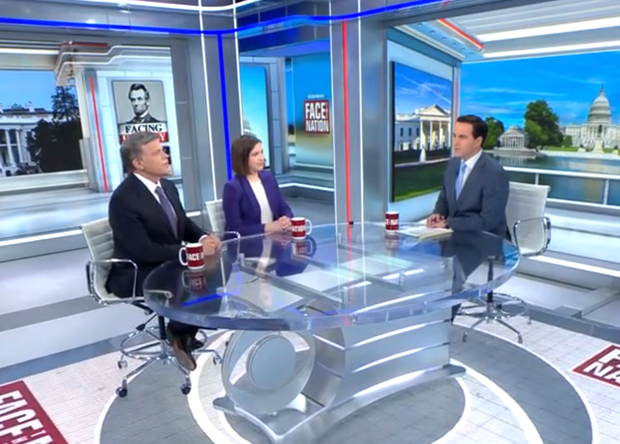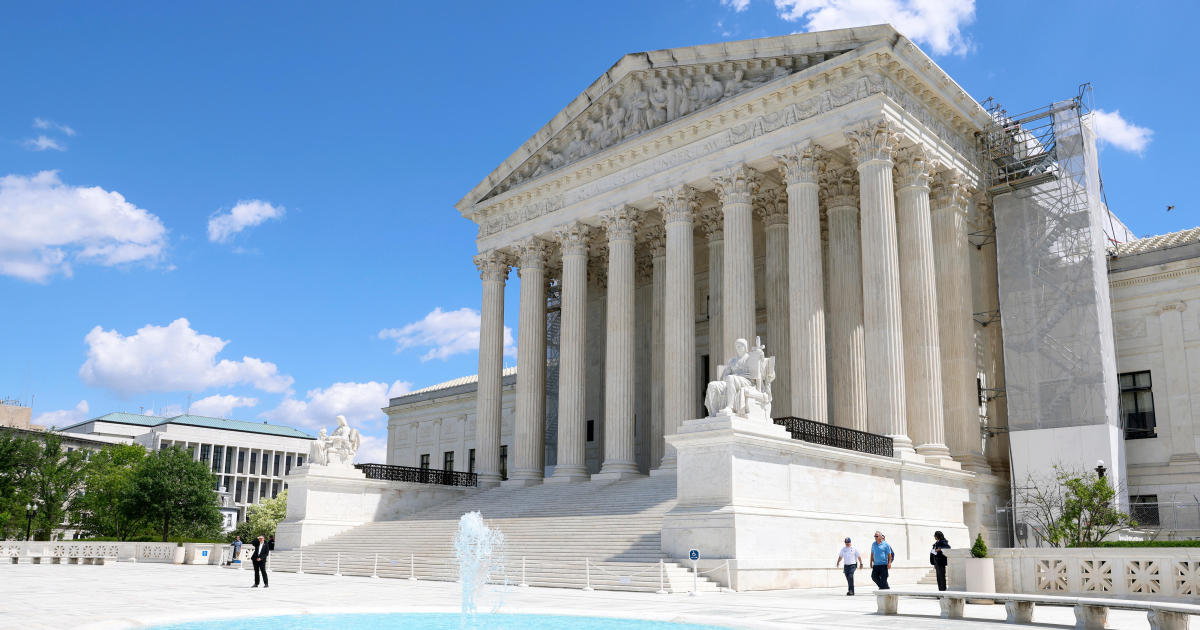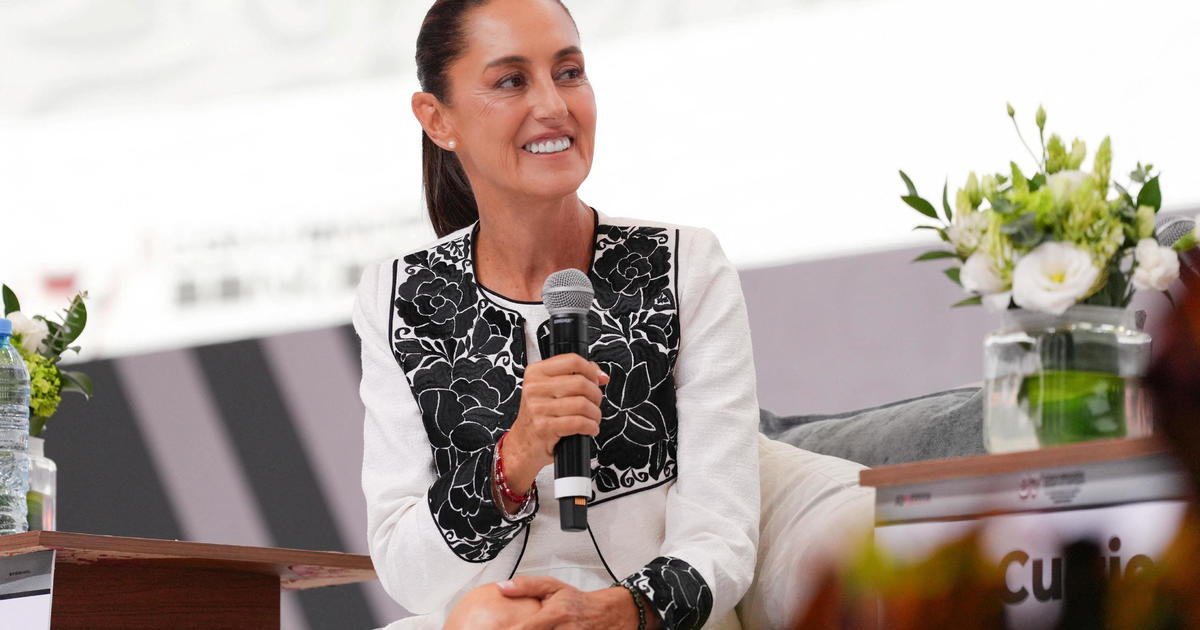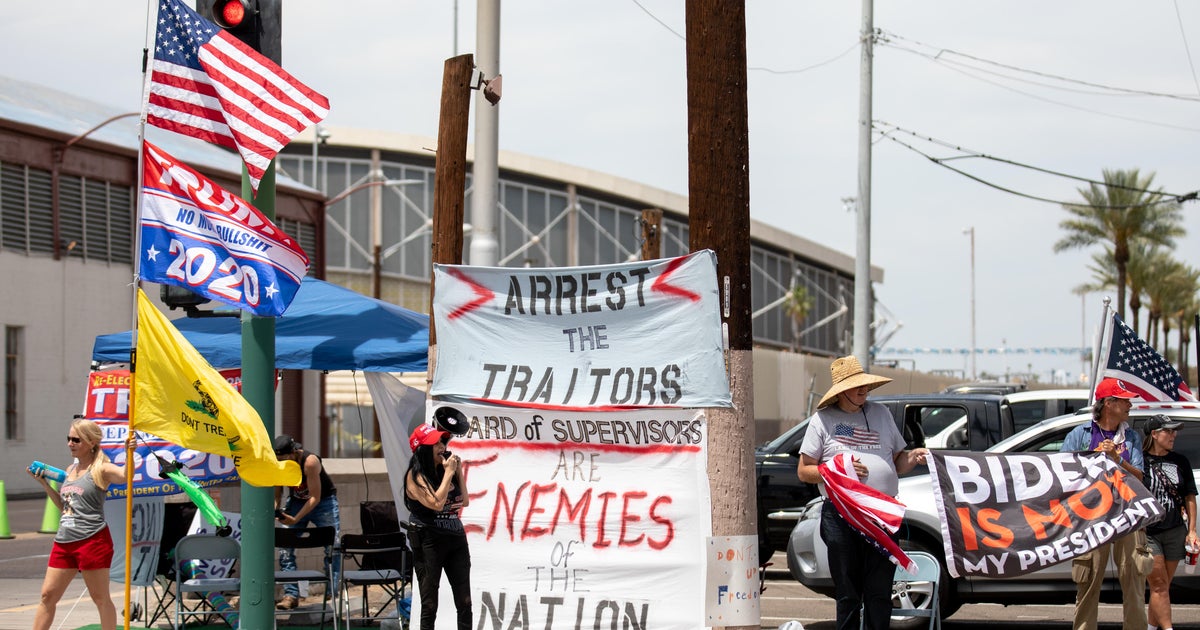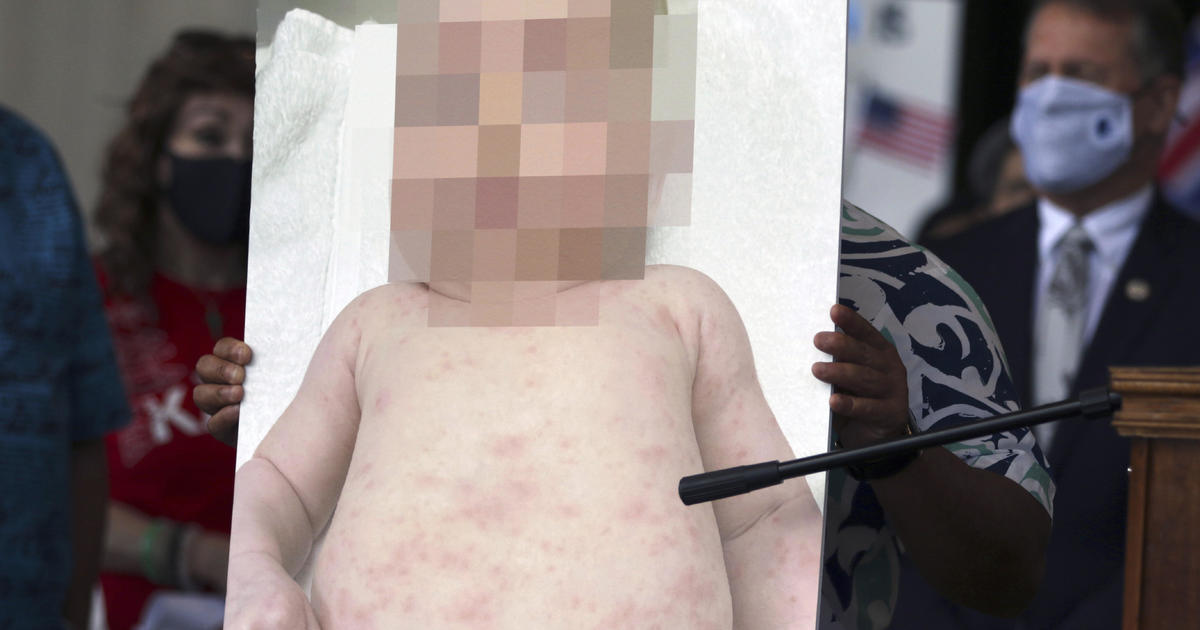Presidential historians on unprecedented situation: Not "an ordinary clash of political interests"
This "Face the Nation" interview with a panel of presidential historians was scheduled to be aired on Easter Sunday, 2023. Due to the Masters Tournament, the segment was pre-empted. The full interview is in the player above for our viewers to watch and enjoy.
Former President Donald Trump last week became the first former president to be charged with a crime, an unprecedented time in history that historian Jon Meacham reminded Americans that not just those in government matter to keep the democracy but also "we the people" in this "big, broad, disputatious, diverse country."
"I think what everybody has to do is, take a deep breath, assess where the country is headed, where are we now, and say, you know what, we believe that as imperfect as our past has been, that declaration, that Constitution, has managed to get us pretty far down the road. And those should be preserved and amended as necessity dictates," Meacham said during a panel discussion on "Face the Nation."
Meacham was joined on the panel by other presidential historians Lindsay Chervinsky, Richard Norton Smith and Douglas Brinkley. CBS News chief elections and campaign correspondent Robert Costa moderated the panel.
While there is no historical precedent for a former president being indicted and charged, Smith noted that in 1974, President Gerald Ford "personally believed" that if the legal process played out in the Watergate investigation, President Richard Nixon would be "indicted and would be convicted, at least on an obstruction of justice charge."
Ford had "to make the tough decision, which he realized could be politically suicidal, of trying to not forgive Nixon, but forget Nixon," Norton Smith said.
This era, Meacham noted, is "where we were in the 1850s in many ways." "I don't think we do ourselves any favors by pretending that somehow or another, this is an ordinary clash of political interests," Meacham added.
Chervinsky also spoke to this divide and what makes it so unique.
"I think one of the biggest effects of Trump's legacy and his presence still in American politics, and perhaps also the biggest challenge that President Biden is facing, is he literally can't reach a portion of the American people," Chervinsky said. "They won't hear him, they won't listen to him. They think that he is evil and does terrible things and it's often not based on fact, or news, but rather through the information silo that they are in. And Trump really dominates that information silo."
Chervinsky's warning came as a judge ruled that Fox News will go to trial over its airing of false allegations that the 2020 election was rigged in favor of Joe Biden. The network and its correspondents repeatedly made claims of election rigging despite internal documents showing that Fox News employees knew the claims were false.
The four presidential historians also weighed in on this moment in history and American democracy.
"I'm really drawn by the moment that we see and the parallel that we see in Franklin D. Roosevelt's presidency, where actually the time I think when fascism was most appealing to Americans was in the 1930s because people weren't sure then, as Doug was saying, sometimes they aren't sure now, that democracy could actually get the job done," Chervinsky said.
"What FDR did so brilliantly was he reminded people how important democracy is to their daily needs, to their goals, to their family, to their American way of life," said Chervinsky. "And so I think that if President Biden and his successors can double down on the Democratic themes, can remind people that it's not just some big high ideas, but it's actually essential to their way of life, that is going to be the best way to combat the dangerous trend of nationalism."
But Brinkley said that as the U.S. grapples with an identity crisis, "so many countries in the world right now are trying to figure out what is the United States?"
"I'm worried about it and I'm worried about President Putin and President Xi and their summit and that the signals we're getting from China is that they don't want to be as collaborative with us as we had hoped," Brinkley said. "So we're living in very perilous times. And in that arena, presidents still have the power, not Congress or the Supreme Court."
Norton Smith also described what presidents can do to safeguard American democracy.
"[America] requires that politicians, you know, professional practitioners of democracy, in effect, play by a rulebook, and they're willing to lose," said Smith. "They're willing to lose for principle, as Ford demonstrated when he pardoned Nixon, but they're also willing to lose at the ballot box."
Earlier this week, former President Trump was indicted on 34 counts of falsifying business records in the first degree. A Georgia court has also empaneled a grand jury to investigate actions by Trump to overturn the results of the 2020 election.
Since the indictment, Trump has continued to fundraise for his current presidential campaign. He has also framed the indictment as an attempt by Democrats to hurt his chances at his third presidential bid in 2024.
Meacham ended the panel with a quote from Frederick Douglass.
"'The fiat of the Almighty,' let there be light, 'has not yet spent its force,'" Meacham said. "But it's up to all of us to make sure that light continues to be shed."
